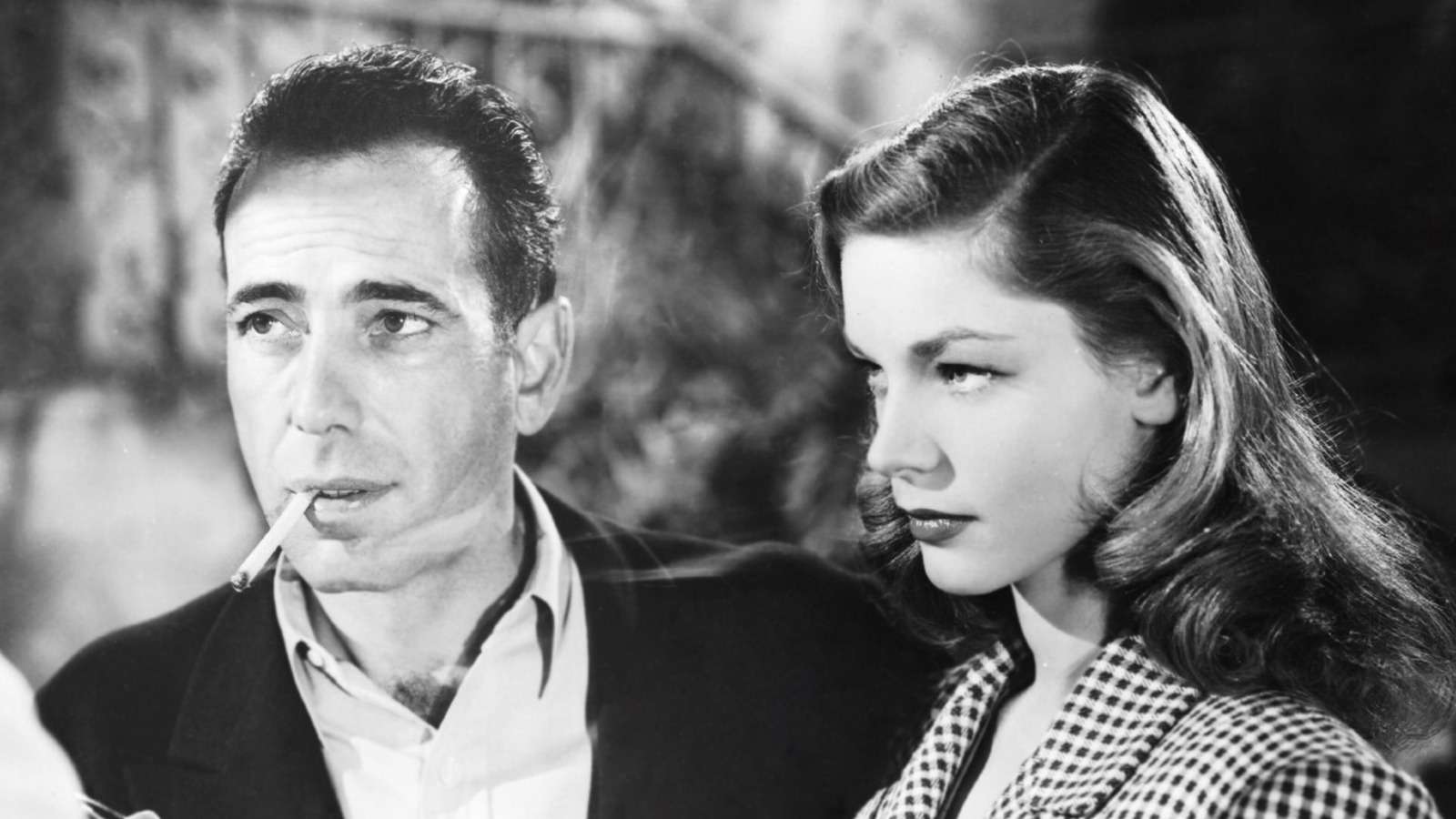
Humphrey Bogart’s Constant Smoking Served A Practical Purpose
The cigarettes eventually became Bogart’s calling card. It became characteristic of Bogart to smoke during his monologues and other dialogue scenes for dramatic effect. This practice began with a practical purpose but inevitably became intertwined with the actor’s image. They were used to break up the dialogue, but they also said something about Bogart and his characters.
Unlike many other actors, Bogart did not shy away from playing the same types of characters over and over again. “Typecasting sounds bad … [but] I think it makes stars out of people,” the actor told Edward R. Murrow (via ADVids). “I gained the attention of people because I was supposed to be a tough guy,” he added, and he isn’t wrong. The “Casablanca” star definitely became recognizable for his roles as rugged hitmen, but there was a disaffected air to his performances that made them special.
Bogart is remembered not as a traditional action hero, but as a dispassionate antihero. “Instead of slaying his tormentor, he was more likely to resolve matters ambiguously by deftly discarding his still burning butt,” author Richard Kluger in his book about the history of cigarettes, “Ashes to Ashes” (via Tough Without a Gun). The cigarette then became a more passive replacement for a gun. Bogart and his characters didn’t care enough about the world to actively engage in it. Instead, they sat back and smoked.
Smoking supplemented the star’s hardened image but ultimately weakened his body. He spent the last year of his life bedridden from throat cancer. His body became so “pathetic” and “frail” that it horrified his long-time friends, his widow Lauren Bacall recounted in her autobiography, “By Myself” (via The Week). The very thing that made him seem so untouchable onscreen rendered him completely vulnerable in the end. Perhaps smoking wasn’t so practical after all.
